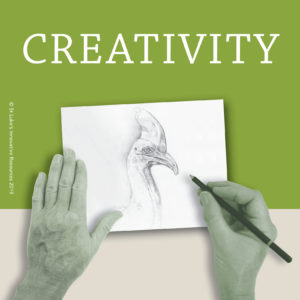As a social worker, I have been taught I need to practise self-care as this will assist me to continue to help others. Whilst I agree that self-care does have this function, I feel like the self gets lost in this explanation since the primary focus is the benefit of others, with the benefit of the self being a somewhat secondary gain. I think self-care needs to be reframed with the self at the centre, and continuing to help others as the secondary gain. This may sound selfish, however, in order to be truly effective I think self-care needs to be self-focussed. This does not mean it cannot include others, as connection is likely to be an important ingredient in self-care practice. Nor does it mean becoming selfish as it is not necessary or even possible to practise self-care 24/7. During self-care practice I think there is a need to put aside the focus on the other, and for this time, to focus on oneself as human services is hard work, and takes a toll on the body and mind.
Keeping this different explanation of self-care in mind and challenging myself to keep the focus on my own needs, I allowed myself time to use the Self-Care Cards for Home & Work with this focus rather than my original thought of using them to help others. In time, I will do that, however, as I navigate some challenges in life and listen to myself, I know I need time with these cards before I can share them with others.
Mostly, I simply selected cards randomly, and what this gave me was a combination of feeling seen, understood and connected.

Creativity sustains me and when I randomly selected this card it reminded me to prioritise it. This can be challenging after a stressful day and this card helped me remember that creativity does not have to take a long time to be effective. Making my own daily cards or doing some stick figure drawings can be enough.
Looking at the hands drawing in this card also helped me feel relaxed as I was able to imagine how it felt in my body when I was creative. It also helped me feel connected because I was not alone in my need for creativity.

The card I chose whilst writing this piece, ‘Food’, is a loaded, complicated topic for me, and this card gave me a laugh. One of the things I enjoy about using these cards is the fact that it is up to me what I do with the card I select. For example, I have chosen to laugh at my selection, experience the humour and lightness in my body, enjoy the moment … and leave it there. I could also ask myself the questions on the back of the card, namely, ‘What role does food play in your life?’ and ‘Would you like to change your eating habits?’ to take this topic further, if that would be useful to me.
Another thing using these cards gave me was permission to be human, permission to be impacted and to honour the strength required in my work. In human services work, I think there is a risk that workers can be judged, criticised and seen as ‘not coping’ if they experience vicarious trauma or burnout. I wonder if the judgement comes from wanting to distance ourselves from colleagues who are suffering to avoid the reality that we too can suffer? There is still much stigma in society when it comes to mental health, including the mental health and vicarious trauma of human service workers. What these cards do for me is hold up a different perspective, like a mirror, and communicate that it is all right to be human and I am deserving of self-care.

This is my creative response to how these cards supported me in being kind to myself; giving myself space to focus on my needs and self-care practice, and putting the needs of others aside for a time, even though that may feel challenging and ‘selfish’.
And as I said, in time I will use these cards with others in my work, such as colleagues and families, to open up discussions about their self-care needs. When I do that I will remember what I needed; permission to focus on myself, with the needs of the self at the centre. I will give this same permission to people I discuss self-care with, giving them space to think of what they need whilst putting the needs of others aside during their self-care practice.
By Danni McDougall, senior practitioner and art therapist.

